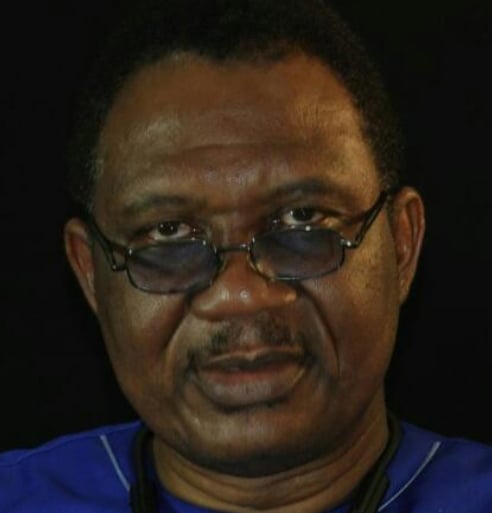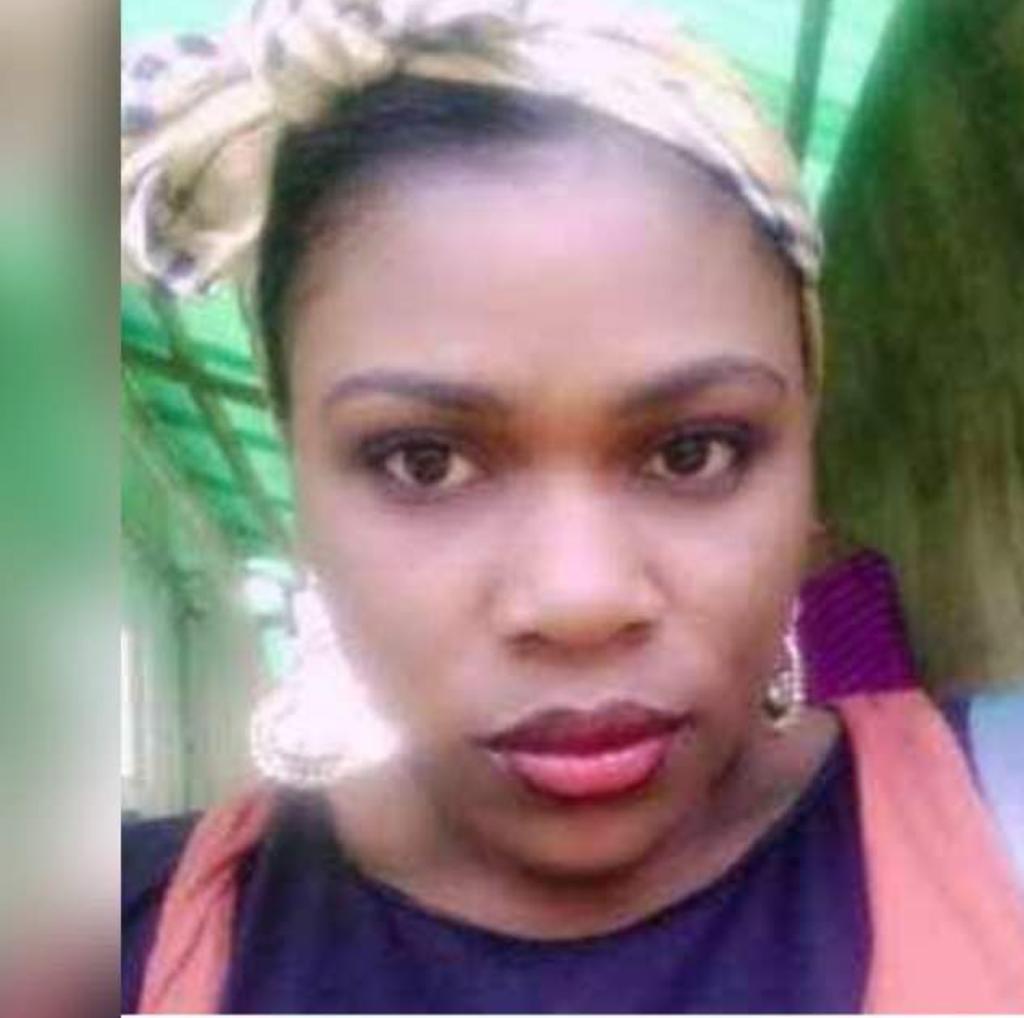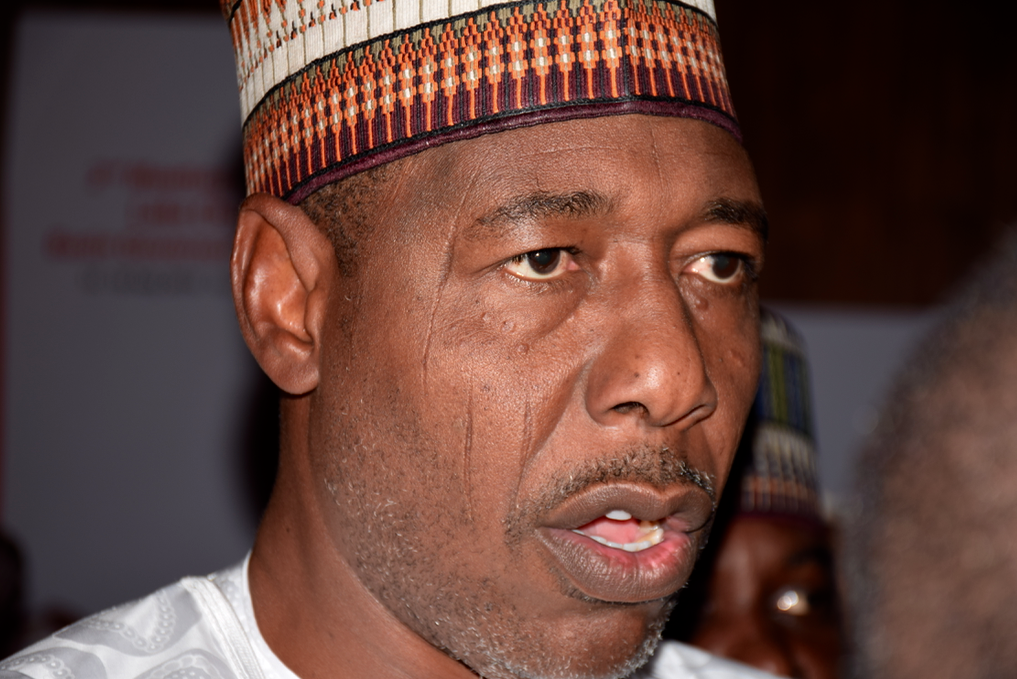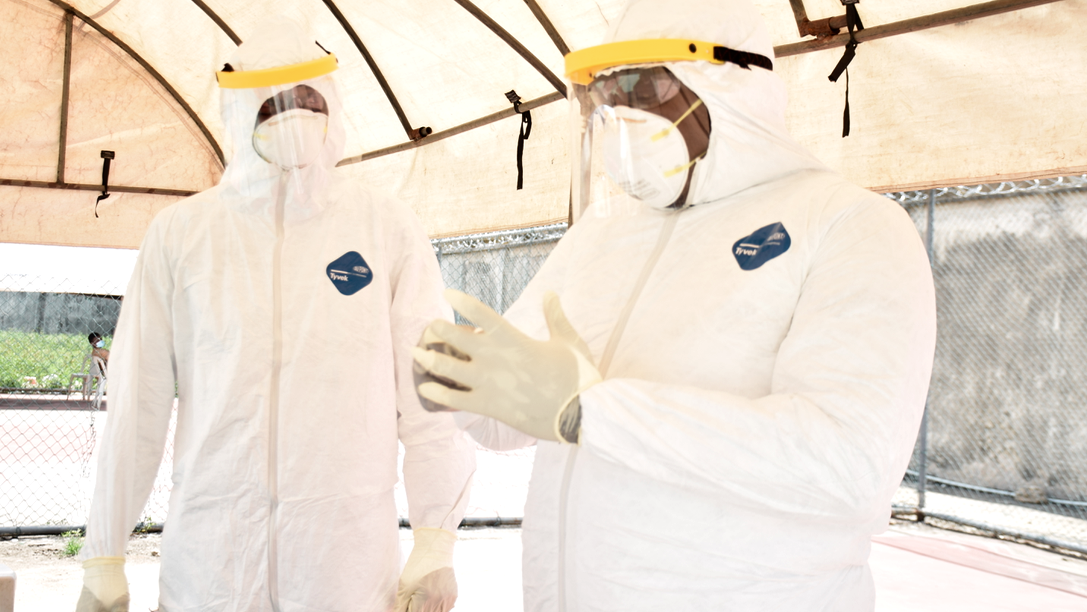Before COVID-19 arrived Nigeria, Fatima Amouzou was full of life and hopeful that she would break through her ongoing illness. She had been sick two years before her 34th birthday on 15 December 2019, which was celebrated while on admission in the hospital. A few days to 2019 Christmas Day, she got better and was discharged. She looked forward to celebrate this year’s Easter in a better health.
She almost made it but for COVID-19 pandemonium at the Lagos University Teaching Hospital (LUTH), Idi Araba, Lagos, where she died 11 April 2020, under circumstances plotted few weeks before her death. Her death is a representative of many similar collateral deaths related to COVID-19 pandemonium. These are the non-reported deaths, and many are they, who were directly linked to COVID-19 even when they were not infected by coronavirus.
Early life: Determined against all odds
The 34-year-old lady fought to live, determined to pull through her illness. She had all the support — financial and emotional from relatives and friends — to stall death. And she was winning the battle, but for the arrival of COVID-19 in Nigeria with the fear and panic it brought on arrival.
Advertisement
Born December 15, 1985 in the city of Lagos into a humble background of Nigerian and Ghanaian parents, she stopped schooling just into junior secondary school because means were limited and the family needed the little support from the contributions in her tender hands.
Barely thirteen years old, she was taken to Abuja by a lady who promised she would take care of her and place her in school whilst she helped with the care of the house. After five years, the promise turned out a ruse; for five years, no school but all work in the house. She returned to Lagos, helping with her mum’s little business before she went back to Abuja a few years later.
Back to the Federal Capital Territory (FCT), she returned determined to develop herself educationally and eke a worthwhile living. She stuck naturally with children, and took up serial appointments as caregiver at Day Care Centers and Nursery Schools.
Advertisement
While working as caregiver, and later as school catering officer, she invested her earnings in her education and self-development in catering classes. She attended adult classes, sat and passed GCE/SSCE and further enrolled at the National Open University. Beyond this, she was also playing the parental role for her younger siblings, assisting with their education, including the youngest of them, a male, schooling in a private university in Ghana.
She was doing well and happy with herself and the humble family progression until sickness struck late 2017.
Uneven medical history
At first, it felt like ordinary torso discomfort. Later she started noticing progressive difficulty to pass faeces freely, then menstrual symptoms, later reduced urine flow and persisting pain at the lower abdomen.
Advertisement
There began the journey from hospital to hospital in Abuja, private and public, including FCT District Hospital, Asokoro, and National Hospital, Abuja, and endless diagnostic journey. The findings of the medical imaging (MRI, ultrasound scan), blood tests and biopsies from the womb were not however conclusive as to what was the primary issue. Whereas the imaging reports were pointing at a mass in the pelvic region, the womb biopsy histology reports were not confirmatory, repeatedly limiting the conclusions to just chronic inflammation with no tumor cells yield – a medical puzzle. With these inconclusive findings in Abuja, she was advised to seek advanced diagnostic procedures abroad.

With limited fund, the only feasible “abroad” for her was her other home country – Ghana. July 2019. Through a recommendation from a relative and support from her younger brother, she sought treatment at a Presbyterian Hospital, Ghana, where similar investigations were run and same inconclusiveness was arrived per diagnosis. Nevertheless the Ghanaian medical team went ahead to carry out a surgery on her which could not do much about the primary condition (the pelvic mass was inoperable) and had to close her. No succour; back to square one.
Back to Nigeria from Ghana, she got encouraged by a friend to seek case review and treatment at a medical facility in Lekki axis of Lagos. Attending was a Manchester-based Gynecologist who shuttles Nigeria every other month. After assessment, she was billed N4 million for the surgery and related interventions. Another bus stop. The family was drained financially; all her savings were gone and the other source of support from her brother had gone to zero. The young man’s workplace had folded up.
The situation was hopeless until she got a referral to the modest health intervention foundation where I act as the medical advisor, with invaluable support and resource backbone from a friend. The foundation is built on the philosophy of passion and getting the best for the indigents, whose health is left hanging because of lack of finance.
Advertisement
Her case was reviewed serially by the foundation’s spectrum of associate specialists — gynecologists, urologist, nephrologist, general and vascular surgeons, radiologists and oncologists. All reviews were pointing at an unlikely gynecological mass. Subsequent ultrasound guided, and later CT-guided, biopsies soon resolved the riddle. According to the biopsy’s immunohistochemistry reports, Fatima had an immuno-chemotherapy susceptible Non-Hodgkin Lymphoma (mass) at the lower pelvic, lying behind the womb and upper vagina. In the words of an oncologist colleague, “that’s a game-changer.”
Game Changer
Advertisement
A game changer, it was. After the immunohistochemistry report was reviewed, she was referred to Lagos University Teaching Hospital. She commenced treatment at LUTH’s Hematology Department by mid-January 2020 under closed hospitalization for four weeks, where she had her first two courses of immunochemotherapy.
Changes became apparent. She felt light and better; clinical and physical indices were essentially promising. No more indications for routine dialysis, the nephrostomy tube in-situ (for urine bypass off the bladder) from the left kidney fell off but there was no need for a replacement because she had began draining adequate urine through the bladder. She was doing well, we were confident she would pull through and her managing team in LUTH were encouraged she would conquer the illness, which explained why she had her 3rd immunochemotherapy course as a day case (out-patient basis) by second week of March 2020, and it went uneventful. It was close to her next due immunochemotherapy course ending of March that unexpected issues arose.
Advertisement
Wack COVID-19 Policy
One fundamental thing was the advent of COVID-19 in Nigeria. By latter half in March the reality of coronavirus infections likely to go high in the country has become a certainty and all major hospitals in the country had reviewed their policies for day-to-day patients’ care management including hospital admission policy.
Advertisement
The immediate response in LUTH, like some other hospitals in the country, among others, was closure of routine clinics, reduced and discouraged hospitals admissions and to reduce the available hospital on-ground staff. Health workers — doctors, nurses etc — were divided into two with departmental rosters drawn as weekly shift, this invariably halved the effective staff strength on ground at any point in time during the COVID-19 pandemic.
That was the situation on ground at LUTH during Fatima’s case. The bar for hospitalisation is raised quite high and this soon became a subject of contention in Fatima’s case when she began to have issues after her last (fourth) immunochemotherapy on March 30, 2020.
Even when the issues that arouse would have otherwise been a ready basis for admission in order to effectively titrate white blood cells colony stimulating medication against the initial very low white blood count indices recorded with daily laboratory reports and thus optimize her clinical status, this was not to be. Unfortunately based on the prevailing hospital policy, the approach taken was deferment of admission all through the period of ten days after the immunochemotherapy. It was so bad that even a neutrophil count of 10% of lowest normal count was not taken as loud enough alarm to warrant hospitalisation. She was asked to go back home. In her words, in the chat I had with her Wednesday, 8 April 2019: “They kept passing me to this person that person.” They said “LUTH is not safe for admission”. This was three days before her demise.
Avoidable death
By the time she presented two days later on account of worsening chest and abdominal pain, breathlessness and next to nil urination (three days running) at the Day Care Center at LUTH on Friday, 10 April 2020, the situation had gone far worse. From direct engagement with relatives that day, it became obvious that response to intervene was poor, not withstanding that she was armed with relevant blood cells and chemistry (including creatinine > 600umool /L) reports, done en route LUTH, to make decisions easier; it took hours before the decision to admit was executed. And there was no definitive intervention (dialysis etc) on the renal shutdown until she died in the morning of the following day, Saturday 11 April 2020.
Protect health workers
As a loud voice in the quest for a better Nigerian health system, presently at its lowest ebb ever, I know the situation on ground at LUTH and other similar centers is far from optimum. I know there are inadequate PPEs for all doctors and other health workers to protect themselves. I know based on my personal interaction that the confidence to intervene to save lives is at the lowest margin now because health workers feel inadequate and unsafe, arising from lack of PPEs and effective training on them; no after-events assurance i.e. life insurance and are at best they are on hazard allowance of N5,000 per month. It pained me as some of those colleagues confessed that their hands are tight; they wish to help but can’t help. So sad.
Sad, I have to run this commentary on the mass media especially as a cadre in the healthcare business. But I hold this to memory of the deceased; to state her own case, her disappointment in a failed system; for all to appreciate her fight in the struggles to stay alive but for the parlous state of Nigerian health system. And also to note the panicky uncoordinated policy of the health system (beyond LUTH) on what should be the place our hospitals in the daily care of the millions that are presently sick or would get sick during this pandemic but who are not infected by coronavirus.
Rethinking COVID-19 policy
Should we abandoned the hospital for COVID-19 pandemic wholesomely by closing all routine clinics, strict ill-defined high threshold for admission policy which are leading to far more deaths than COVID-19 related deaths? I think not.
Instead, in order to avert this self-endangered deaths of regular hospital patients and others, hospitals must be prepared to treat all patients as potential COVID-19 cases. Personal Protective Equipments for all health workers and other frontline workers must be available, emergency localized equivalents must be considered.The governments (at all levels) must make the coronavirus test centers more liberalised, all Level 2 (general hospitals) and Level 3 (Teaching hospitals etc) must have capacity to test on demand all cases and sort out Covid-19 cases into isolation wards. And if necessary, later transfer to Special Isolation Centers.
These are my proposed starters, in honor and memory of the Fatima Amouzous of this world, victims of our failing health and sociopolitical system.
Adieu Fatima.







